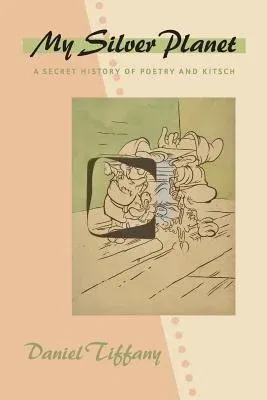Reveals the hidden origins of kitsch in poetry from the eighteenth
century.
Taking its title from John Keats, My Silver Planet contends that the
problem of elite poetry's relation to popular culture bears the
indelible mark of its turbulent incorporation of vernacular poetry--a
legacy shaped by nostalgia, contempt, and fraudulence. Daniel Tiffany
reactivates and fundamentally redefines the concept of kitsch, freeing
it from modernist misapprehension and ridicule, by tracing its origin to
poetry's alienation from the emergent category of literature. Tiffany
excavates the forgotten history of poetry's relation to kitsch,
beginning with the exuberant revival of archaic (and often spurious)
ballads in Britain in the early eighteenth century. In these
controversial events of poetic imposture, Tiffany identifies a submerged
pact--in opposition to the bourgeois values of literature--between elite
and vernacular poetries.
Tiffany argues that the ballad revival--the earliest explicit formation
of what we now call popular culture--sparked a perilous but seemingly
irresistible flirtation (among elite audiences) with poetic forgery that
endures today in the ambiguity of the kitsch artifact: Is it real or
fake, art or kitsch? He goes on to trace the genealogy of kitsch in
texts ranging from nursery rhymes and poetic melodrama to the lyric
commodities of Baudelaire. He scrutinizes the fascist "paradise"
inscribed in Ezra Pound's Cantos as well as the avant-garde poetry of
the New York School and its debt to pop and "plastic" art. By exposing
and elaborating the historical poetics of kitsch, My Silver Planet
transforms our sense of kitsch as a category of material culture.

